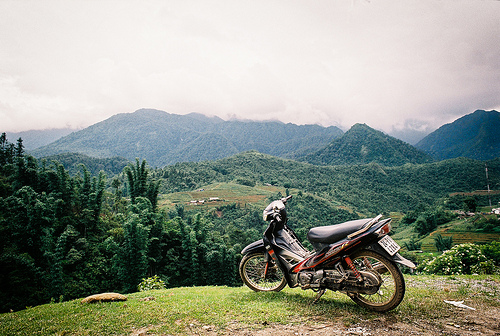In the last few decades since Vietnam opened up and started a range of political and economic reforms, the country has rapidly improved its profile as a tourist destination. Unsurprisingly, many people have visited the country as tourists, fallen in love with it, and decided to come back to live there for a longer period of time. The country’s natural beauty, great weather, low cost of living, rich culture, and the government’s eagerness to invest in infrastructure make it a very attractive expat destination.However, living in any place is of course different from spending a month there on holiday. And when a country is drastically different from your own – which Vietnam is for many expats, in terms of food, language, social etiquette, weather, bureaucracy, politics, and many other things – the difference between vacationing in the country and living there long-term is even greater.
Visas and permits
First of all, if you’re planning work in Vietnam, you need a work permit – you can be deported if you work without one. Getting a tourist visa to Vietnam is a relatively simple process. Getting a resident visa or a business visa and a work permit might seem simple too, but in reality, there are often complications, confusion, and inconsistencies. Having your employer or an agent help with this paperwork is the best option. You should also remember that Vietnam does not allow long term visas – if you plan to retire here or otherwise live here long-term, you will need to keep renewing your visa.
Another important thing to note is that while citizens of certain countries don’t need visas to enter Vietnam, this entry is for only a short period of time, typically no more than a month. To stay longer, you will need to apply for a visa.
Accommodation
Living anywhere of course involves buying or renting a home, rather than a hotel room. In Vietnam, you can buy or even build a house, but you cannot own the land it stands on. Buying is also quite complicated and painful, and so most expats prefer to rent. Rents start at extremely low prices (some expats spend less than a quarter of their income on rent), but of course can go quite high, depending on the location and the type of house.
Cost of living
Vietnam is definitely a cheap place to live in, even as an expat. Of course you need to remember that when you were on vacation, you were earning according to the standards of your home country. Income levels in Vietnam are lower, and while expats often earn more than locals because they’re filling important skill gaps, you will still earn less than you would back home. (If you’re going to run your own business, things could be even tighter.) When you’re earning in Vietnamese dongs, things don’t seem so amazingly cheap any more. Again, this is not to say that things aren’t cheap – most expats find that they can live well and still save a decent percentage of their income – but your Vietnamese savings probably aren’t going to add up to much when you convert them to your home currency, and of course most expats do eventually end up going back home.
Language and culture
When you’re on vacation, it’s easy to get by with a handful of Vietnamese words or even with just English. Most people in the tourist industry speak English, and sometimes other foreign languages too. However, if you’re living in Vietnam, it’s extremely important that you learn the language, and it’s advisable that you start well before you make the move. It is possible to manage without Vietnamese, but this will definitely be a barrier to getting things done and to forming more than superficial relationships.
In general, the culture too will take some getting used to. Again, people in the tourism industry are used to foreigners; when you’re living in the country, your co-workers will probably be used to foreigners too, but for most other people, you will be a novelty, and will sometimes be treated as such. You will also need to get used to the approach to driving, to punctuality, ideas of respect, and of course the food.
Can we improve this article? Something wrong? Let us know in the comments.

